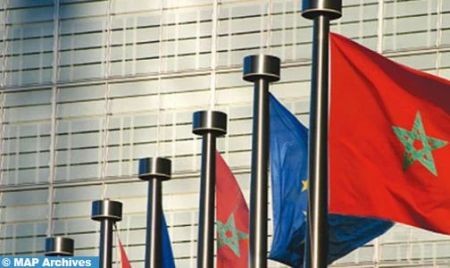EU Reaffirms Positive Socio-Economic Impact of Agricultural Agreement with Morocco – Official Report –
The European Union reaffirmed, in its 2023 report, the positive socio-economic impact of the agricultural agreement with Morocco, and the full benefit of the agreement’s provisions for the population of the kingdom’s southern provinces. The publication of this annual report by the European Commission and the European External Action Service (EEAS) comes on the heels of the setback inflicted by the Advocate General at the European Court of Justice, who stripped the “polisario” of all representativeness and reaffirmed the relevance of the agricultural agreement between Rabat and Brussels. The report, which is part of the implementation of the agreement in the form of an exchange of letters, amending Protocols 1 and 4 of the Morocco-EU Association Agreement, which came into force on July 19, 2019, commonly known as the “Agricultural Agreement”, continues, as in previous years, its positive tone, detailing point by point the many aspects of the benefits brought by this agreement to the population of the Kingdom’s southern provinces. Doubly relevant, the report reflects, on the one hand, the quality of the Partnership between Morocco and the European Union, and bears witness to the satisfactory implementation of the Agricultural Agreement, thanks in particular to the existing tools for dialogue and information exchange between the two parties. On the other hand, and for the fifth time in a row, the report deconstructs the propaganda fueled by Algeria and the separatists in an attempt to call the legality of the agreements between Morocco and the EU into question. Backed by figures, the document confirms the positive impact of this Agreement on the socio-economic development of the Moroccan Sahara regions, in terms of economic growth, production and export of agricultural and fisheries products, job creation and investment. In fact, the report details, in 2022, 203,000 tonnes of products originating from the kingdom’s southern provinces were exported to the EU, compared with around 100,000 tonnes before the agreement was applied. The value of exports from the southern provinces to the EU amounted to 590 million euros (6.41 billion dirhams). The impact on employment is equally clear. The number of jobs is up on 2021: by 2022, it is estimated that the agreement will have created over 49,000 direct jobs in the southern provinces (+7,000 compared to 2021), representing over 18% of the territory’s working population. The European Executive and the EEAS also highlight the major infrastructure projects currently under construction, notably in the fields of seawater desalination and renewable energies, as well as the impact of the measures deployed in terms of investment, improved working conditions, socio-economic integration, vigorous support for youth, and infrastructure development. They also review the effects of the agreement on natural resources, noting that Morocco has taken major steps in the fight against water stress, investing hundreds of millions of euros in developing water desalination plant projects, which are powered by renewable energy sources. Thanks to their multiplier effect at various levels, these investments, they stress, should contribute to the economic development of the territories and increase their attractiveness to local and international investors, while also enabling the development of new industrial activities that could benefit from the agreement. Overall, the 30-page report highlights the considerable progress made by Morocco in the socio-economic development of its Southern Provinces, as part of the “2016-2021 Development Program” initiated by His Majesty King Mohammed VI, through the implementation of large-scale socio-economic projects and various public policies deployed in these regions. In its tone and the detailed data provided, the report reflects the satisfactory implementation of the agreement and confirms the continued development of trade between the two parties, thanks to the tariff mechanism benefiting Moroccan products destined for export to the EU from the twelve Moroccan regions. Leaving no stone unturned, the report highlights Morocco’s significant achievements in protecting human rights at national level, and its leading role at multilateral level, shedding light on its election to the Presidency of the Human Rights Council. It recalls the quality of the dialogue between Morocco and the EU within the framework of the dialogue structures of the Association Agreement, and the important role played by the regional Human Rights Commissions in Dakhla and Laayoune, reiterated in the latest UN Security Council resolution. The EU services were able to exchange views with various economic players and representatives of civil society, including non-governmental organizations active in the field of human rights in these regions, who underlined the vital importance of the Agreement, its satisfactory implementation and its beneficial impact on the socio-economic development of the Moroccan Sahara regions. With regard to the National Issue, the report endorses the Security Council’s insistent call for the registration of the populations sequestered in Tindouf, Algeria, and the importance of taking all necessary measures to this end. It reiterates the EU’s firm support for the UN Secretary-General’s Personal Envoy, Staffan De Mistura, and the UN process, while standing ready to contribute to strengthening regional cooperation. Through this report, which sounds like a rejection of Algeria’s position, the European Union is demonstrating its commitment to ensuring the continuity of its trade relations with Morocco, and illustrating once again the commitment of European institutions to the stability and development of the long-standing, strategic and comprehensive economic partnership with Morocco.

